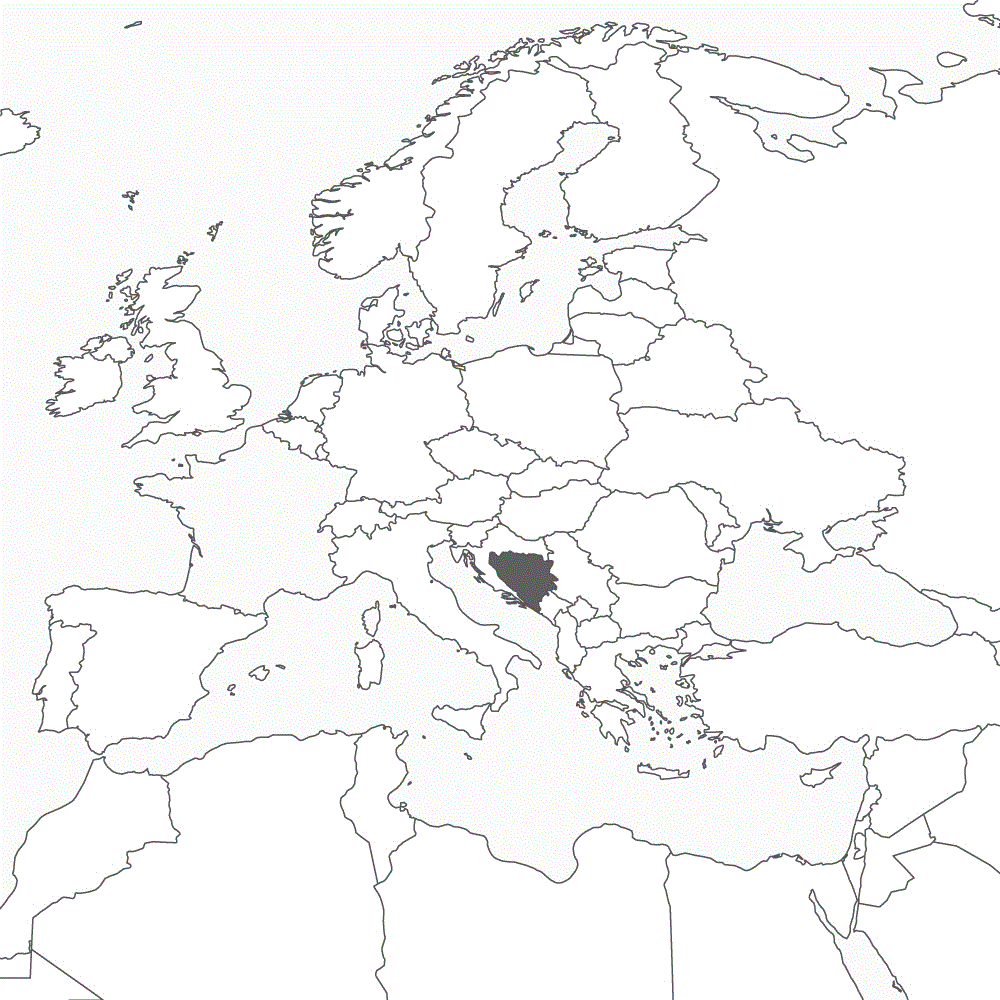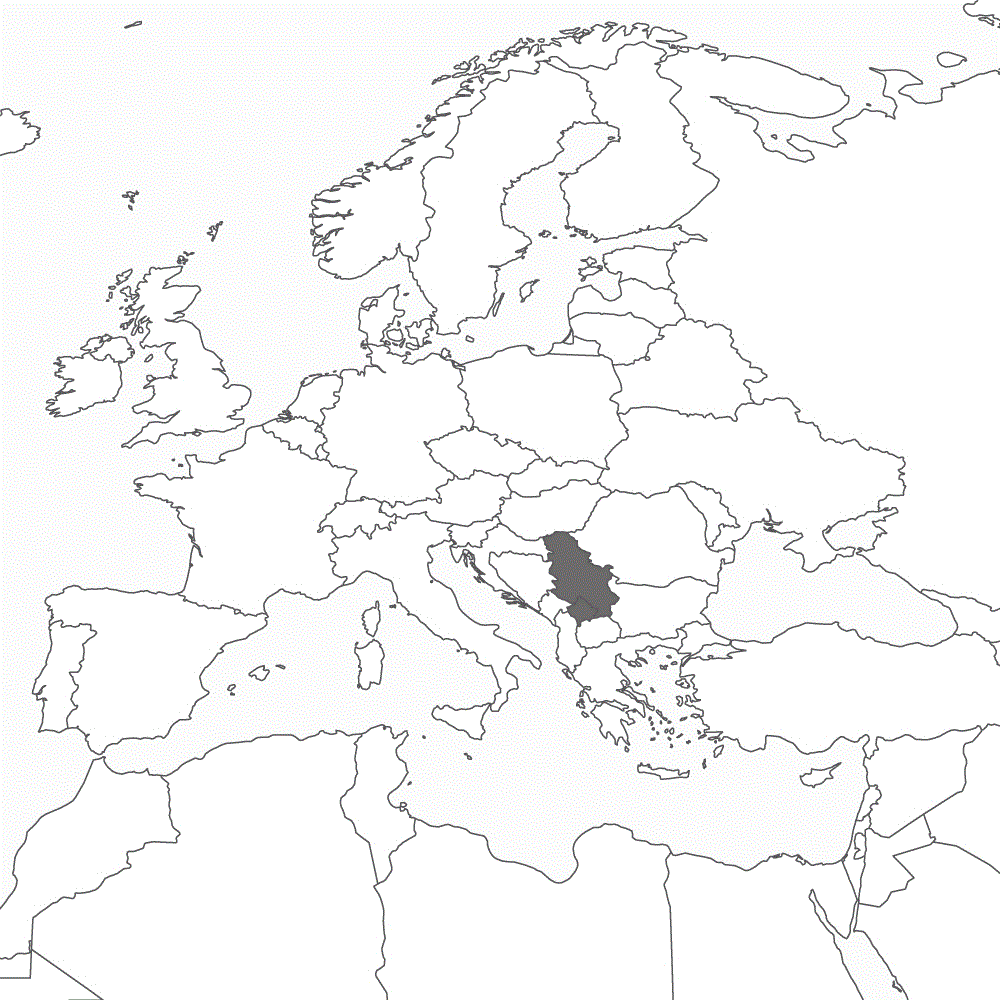Colonial Octroy
The High Representative for Bosnia-Herzegovina, Christian Schmidt (CSU) is escalating the conflict in that country with a colonial style octroy. The objective is to reduce Russia’s influence.
SARAJEVO/BERLIN (Own report) – The CSU politician and High Representative for Bosnia-Herzegovina, Christian Schmidt, is exacerbating the domestic conflict in the country of his assignment to the point of an uncontrolled escalation. Schmidt has held the – non-democratically legitimated post – for nearly two years and exercises quasi-colonial powers over Bosnia-Herzegovina. Last autumn he used these to impose a new electoral law during the electoral process. This step has provoked strong national and international protest, especially because it reinforced the Bosnian-Croat nationalists and weakened the Bosnian-Serbs. According to observers the objective is to undermine Russia’s remaining influence in the power struggle against Moscow. Now Schmidt is again in a confrontation with the Serbs in a dispute over Bosnia-Herzegovina’s constitutional court – in which one third of its judges are chosen by the West – and he is threatening to imprison officials abiding by a new Bosnian-Serb law. The situation threatens to get completely out of hand. Speculations are heard pertaining to EU military activities. Read more
Back to Square One
The Bundeswehr is again sending troops to Bosnia-Herzegovina. More than a quarter of a century after Dayton, the West’s attempts to calm the situations have proven a failure.
BERLIN/SARAJEVO (Own report) – Nearly ten years after its pullout, the Bundeswehr is again furnishing troops to the EU mission in Bosnia-Herzegovina. Since Tuesday, German military personnel are present at the headquarters of the EU’s Operation Althea in Sarajevo. Others will be assigned to carry out research on the population of Bosnia-Herzegovina within the framework of so-called Liaison and Observation Teams (LOT), while simultaneously promoting support for the EU mission in that country. The failure of the Dayton Agreement – signed more than a quarter of a century ago – which has been incapable of stabilizing Bosnia-Herzegovina and helping that country to recover, is the reason for the return. Instead, the ethno-proportional representation à la Dayton combined with foreign interference has blocked all progress. In addition, the West still insists on imposing a High Representative for Bosnia-Herzegovina, who has no democratic legitimacy and can rule in Sarajevo like a sort of colonial governor. The Bundeswehr’s return to Sarajevo is taking place at a time when Berlin – unsuccessful in Bosnia-Herzegovina – is sending troops to take up positions in the Asia-Pacific region against China. Read more
“Won’t Relinquish to Moscow”
Foreign Minister Baerbock travels to Serbia and Bosnia-Herzegovina to roll back Russia’s influence there. In Bosnia, old tensions are currently on the verge of escalating.
BERLIN/SARAJEVO/BELGRADE (Own report) – With her trips to Serbia and Bosnia-Herzegovina, Foreign Minister Annalena Baerbock is initiating new steps to roll back Russia’s influence in Southeastern Europe. She will “make it clear that we will not relinquish this region in the heart of Europe to Moscow’s influence,” Baerbock declared before embarking on her trip to Sarajevo and Belgrade. Her talks will be taking place today in Serbia almost exactly 23 years after NATO’s invasion of that country in violation of international law, costing the lives of numerous civilians. US Senator, at the time, Joe Biden, had even called for the occupation of the country while the invasion was still in progress. Today, Serbia refuses to comply with the West’s sanctions against Russia, with which it has been having a growing cooperation for years. This is why the European Parliament is now threating that country with additional obstacles hindering its aspired EU membership. Already yesterday, Baerbock arrived in Bosnia-Herzegovina, to threaten Bosnian Serbs with sanctions. They also feel comparatively close to Russia and demand greater independence from the Bosnian government. Read more
"This is our Backyard!" (II)
Observers see the EU’s influence waning in non-EU countries of Southeastern Europe. Think tanks headquartered in Berlin propose sanctions for “kleptocracy” against the countries of the region.
BERLIN/SKOPJE/BELGRADE (Own report) - The EU should add "kleptocracy" to its sanctions regime and extend the sanctions’ provisions to the Western Balkans. This is being proposed by the Berlin-based think tank, the European Council on Foreign Relations (ECFR), in answer to the EU's waning leverage in Southeast Europe. For instance, observers rate the recent resignation of North Macedonia's Prime Minister, Zoran Zaev, as a serious setback for Brussels. Zaev had made considerable concessions to be admitted to the list of candidates for EU accession negotiations, but had been ignored by the EU. Observers diagnose further setbacks in Bosnia-Herzegovina, where the CSU politician Christian Schmidt has been installed as the - non-elected - High Representative endowed with extensive powers, and in Serbia, where opinion polls indicate overwhelming approval for close cooperation with Russia and China, accompanied by a very critical opinion toward the EU. Read more
GERMAN-FOREIGN-POLICY.com
Information on German Foreign Policy: News + Interviews + Analyses + Background

